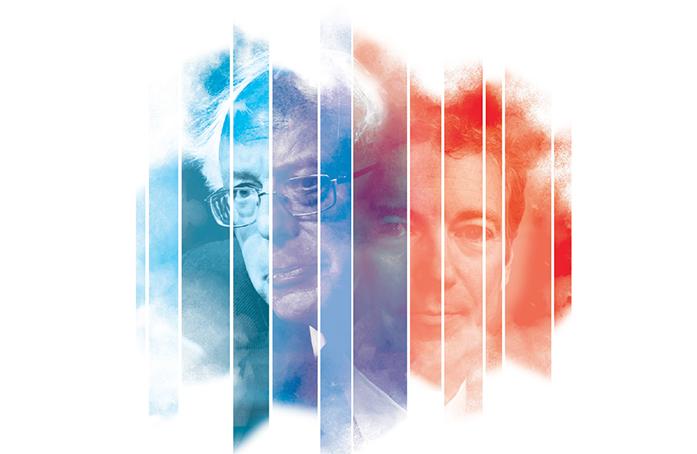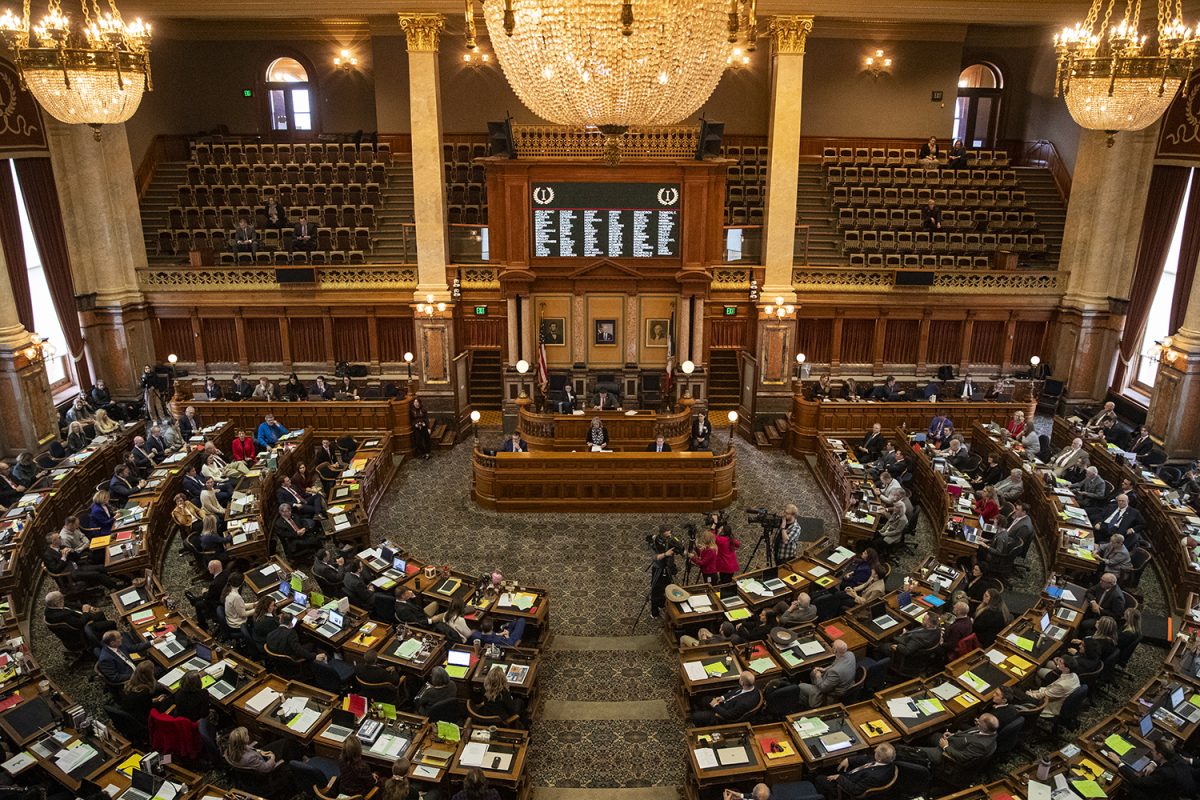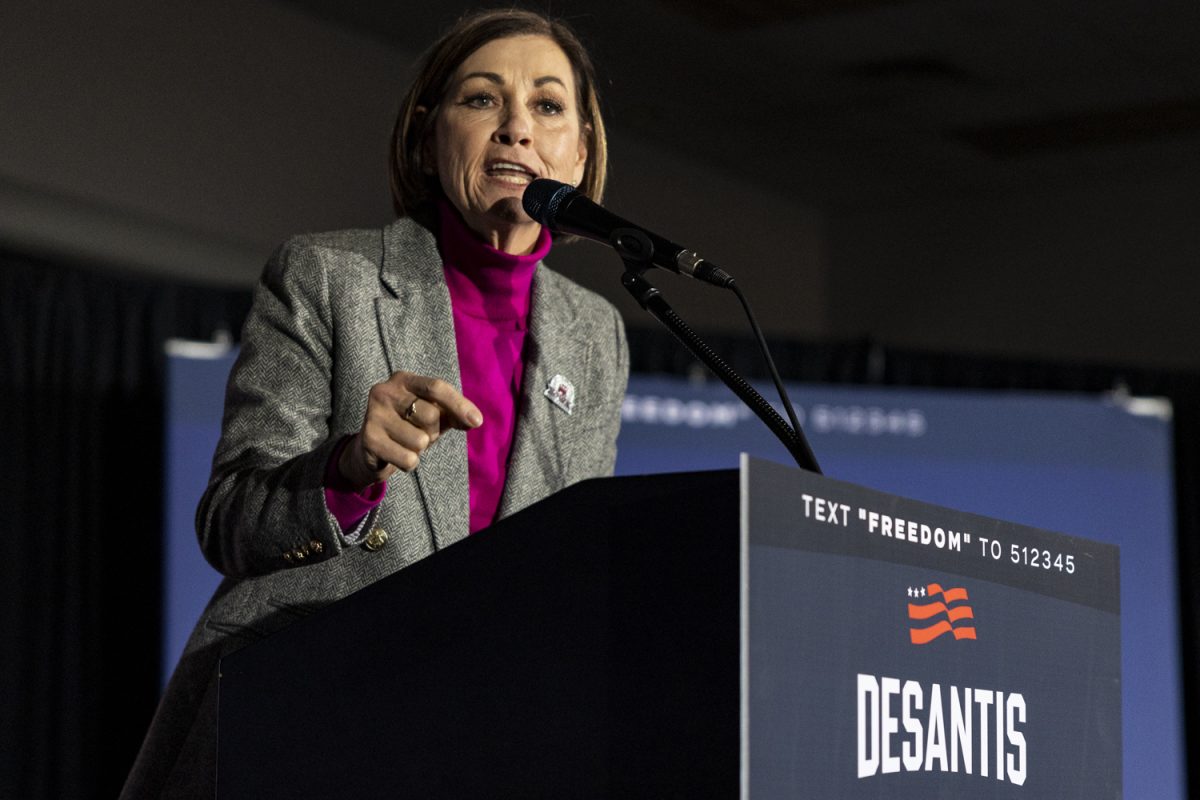Young voters seem to be seesawing between two opposites, Sens. Bernie Sanders, I-Vt., and Rand Paul, R-Ky.
By Aaron Walker
[email protected]
Bend the political spectrum so the ends overlap. Bernie Sanders and Rand Paul are competing for young supporters in that narrow intersection where Sanders, seeking the Democratic nomination, and Paul, the Republican nomination, agree.
The reason is clear. Voters 18 to 29 prioritize reforming the education system 18 percentage points more than those 65 and older and increasing efforts to reduce racial injustice 7 percentage points more, according to 2015 Pew Research data.
Young voters also prioritized fighting terrorism 15 percentage points fewer than voters 65 and older and were 26 percentage points less worried about a terrorist attack on the United States.
Sanders and Paul disagree on nearly every issue, but they agree on making the cost of higher education more affordable, preventing the criminal-justice system from disproportionately imprisoning minorities, and avoiding war at all costs.
Sanders has formed a strong base of young liberals through promises of free college, Wall Street regulation, and election-finance reform, while Paul promises young people he will solve inflated college prices at the core, end the drug war, and allow them to build their futures without being smothered by bureaucracy.
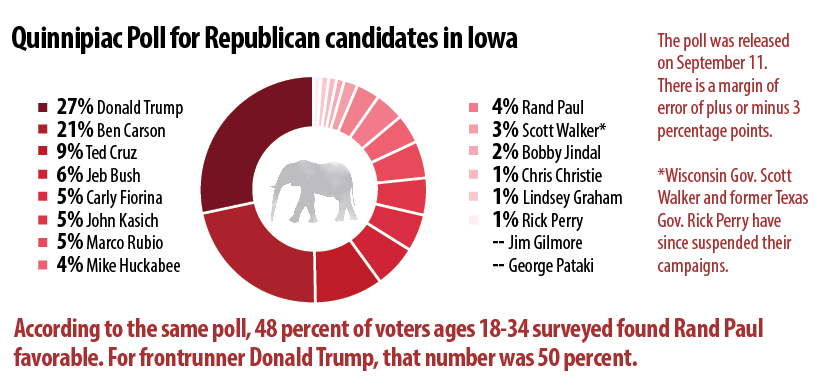
“A choice between Bernie Sanders and Rand Paul is weird, but it is explicable to a degree,” said Justin Holmes, a University of Northern Iowa assistant professor of political science. “They’re hugely different and don’t have a lot in common, but they’re outsider candidates. They’re not the establishment guys.”
Both candidates are, to an extent, antiwar, against the U.S. government’s collection of computer data, and they have supported pathways to citizenship for undocumented immigrants.
One theory regarding youth support for the overlapping positions stems from the youthful idealism of millennials who oppose government data collection, condemn the war in Iraq, and support ending prison sentences for nonviolent drug offenses.
“If you are angry at government, those seem to be your two candidates,” Holmes said. “If you’re angry from the right, Rand makes more sense. If you’re angry from the left, Sanders does.
“If you’re just angry in general, well then toss a coin.”
Quinnipiac Poll released last month showed Paul trailing behind Ben Carson and Donald Trump at 9 percent of GOP caucus-goers in Iowa ages 18 to 34, with a margin of error of plus or minus 3 percentage points.
A few days earlier, Quinnipiac released a poll showing Sanders with support from 66 percent of Iowa’s Democratic caucus-goers ages 18 to 34. And the poll gave Sanders a 1-point lead over Hillary Clinton for all demographics, with a 3.4 percentage point error margin.
“I like Bernie mostly because of where his money comes from,” said Grant Johnson, 20, a junior at the University of Iowa, who will attend the caucus. “I like that he hasn’t taken any PAC money.”
Johnson, who has volunteered for the UI Democrats, said he would never vote for Paul but he thinks Sanders and Paul are the favorites of the young people he knows.
And polling numbers show voters are not concerned with the electability of a non-centrist candidate.
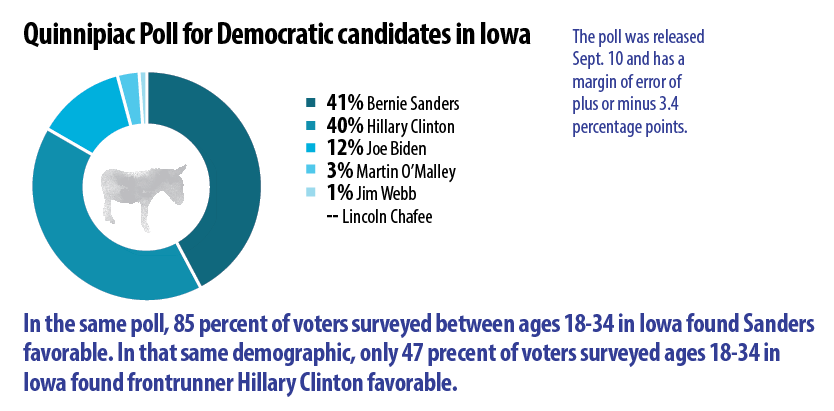
“On the Democratic side, the most electable is probably Hillary Clinton. On Republican side, that’s a lot taller of an order,” Holmes said. “I don’t know if Paul is all that electable in part because he doesn’t speak to lot of Republican constituency.”
Some of his stances that may polarize GOP caucus-goers include his hesitancy about foreign interventions, desire to shrink the military, and mixed opinions on a path to citizenship for undocumented immigrants.
“I have a feeling Rand [Paul] doesn’t want to be too libertarian to scare people off, but the only way to differentiate himself from other Republicans is to be the most libertarian,” said Joseph Dobrian, an author and libertarian activist in Iowa City.
The Paul supporter said he “would never in 1 million years consider supporting Bernie Sanders.” And he equates Paul’s low support in Iowa to the lack of a dynamic speaking ability, a lack of funding, and a lack of novelty.
Historically, the Paul family has seen success in Iowa with young voters. His father, former Rep. Ron Paul, R-Texas, finished third of 10 candidates in the 2012 Iowa caucuses in part by garnering support from 48 percent of caucus-goers ages 17-34. Even though he finished a lowly fifth in 2008, he received support from more than 20 percent of the same demographic in a field of eight candidates.
This cycle, though, is a different story for the younger Paul, whose polling numbers are far below 20 percent.
His numbers in Iowa peaked at 15 percent in January. In May, the same month that Sanders joined the race, Paul’s poll numbers returned to the low teens but have since dwindled.
Paul was the favorite candidate among 25-to34-year-olds and second among 18-to 24-year-olds in the June poll conducted by We Ask America, which had an error margin of plus or minus 3.1 percentage points.
Sanders surpassed Clinton in just one demographic of that poll, 18- to 24-year-olds. He garnered nearly 53 percent of that demographic.
UI senior Shane Hafner, 22, said he usually considers himself a conservative. But Hafner’s favorite candidate this cycle is Sanders.
“I’m usually against government spending, but when it comes to the role of what government should be, maintaining and preserving transit systems should be a top priority,” Hafner said. “I do think if the GOP gets behind Paul, he can win it.”
When Paul spoke at the UI on Oct. 11, he condemned Sanders on numerous occasions. He repeatedly told the students and others in attendance “socialism isn’t sexy.”
After the event, UI senior Alex Staudt, the president of UI Students for Rand, said Sanders is one of Paul’s biggest challengers for the youth vote.
“When students hear ‘free college,’ they jump, but they don’t understand, like [Paul] said, there’s somebody behind the curtain paying for your college,” Staudt said. “Out of sight, out of mind.”




